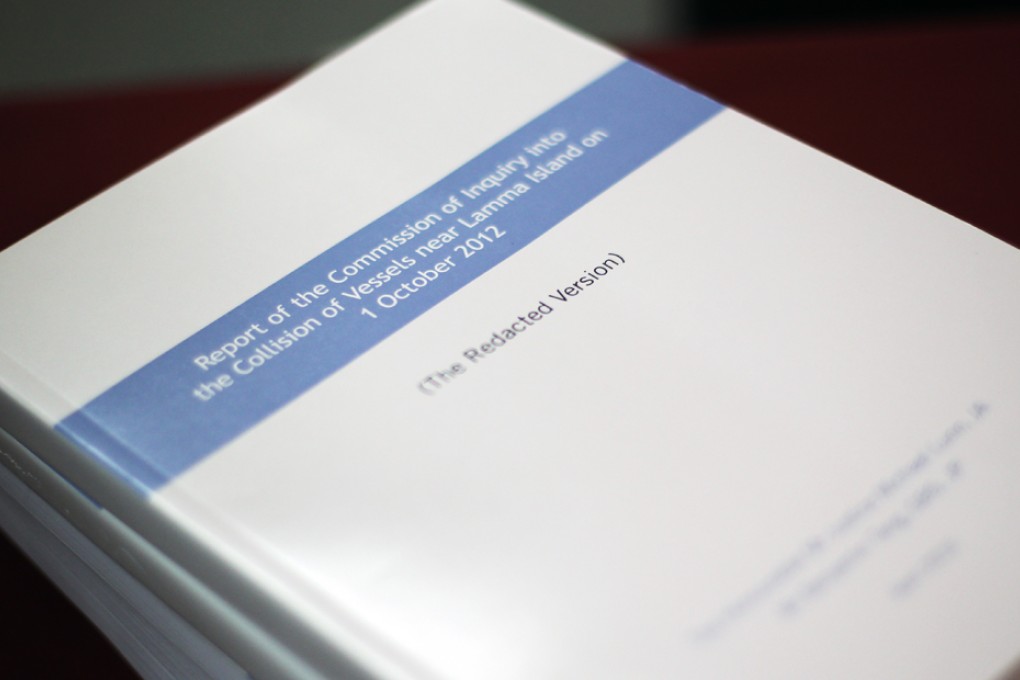Must tragedies, like last year's marine disaster, be our teacher?
Last year, Hong Kong was hit by one of the worst maritime disasters in its history. Thirty-nine people were killed when a ferry en route to watch the National Day fireworks collided with another vessel near Lamma Island. Since then, the tragedy has put the spotlight on a host of safety and bureaucracy issues. A year has passed. One would have thought the problems would have been fixed. The culprits are punished and many of those who were traumatised have moved on. But, sadly, much remains undone.

Last year, Hong Kong was hit by one of the worst maritime disasters in its history. Thirty-nine people were killed when a ferry en route to watch the National Day fireworks collided with another vessel near Lamma Island. Since then, the tragedy has put the spotlight on a host of safety and bureaucracy issues. A year has passed. One would have thought the problems would have been fixed. The culprits are punished and many of those who were traumatised have moved on. But, sadly, much remains undone.
A package of safety enhancement proposals is still nowhere near implementation due to strong resistance from the ferry industry. The fines imposed on the companies involved were ridiculously low. Separately, the findings by a committee of inquiry into the accident are being challenged in court. Another government probe into the responsibility of marine officials is still ongoing, with the pace and transparency of the case heavily criticised. Aggrieved by the limited progress, victims' families are filing lawsuits for compensation.
More disturbing are the recent reports on compliance. Inspections by local media showed that some vessels continue to flout safety rules, hardly comforting news. The excuses of the ferry operators are expected. They warn that some services will be put out of business as the new safety measures will increase costs and put extra burdens on the crew. It is disappointing that the Marine Department has yielded to the pressure and delayed the implementation for the first batch of recommendations. Even if a consensus can be reached as planned next month, it will take another six months before the measures will come into effect. The medium- and long-term measures that the department has promised to put in place look even more uncertain.
At stake is passenger safety. If it is to be achieved with additional cost, this is an outcome that ferry operators and passengers have to face. Under no circumstances should public safety be compromised. We must do whatever it takes to improve standards and safeguards, even if that means additional costs and higher fares.
There is no more terrible way to be taught than by tragedy. Yet, over the years, Hong Kong's safety standards have been enhanced after horrific disasters, such as the Ma Tau Wai building collapse and the deadly street fire in Mong Kok. Perhaps we can learn a lesson before the next tragedy.